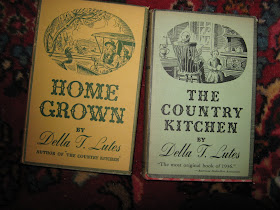I grew up with these bewildering facts:
- My mother's favorite book was: Gone with the Wind .
- My mother's favorite movie was: Gone with the Wind.
- My grandmother's favorite book was: Gone with the Wind.
- My grandmother's favorite movie was: Gone with the Wind.
I loved the movie but didn't read the book till I was 15, when I really was an Anais Nin and D. H. Lawrence person. Recently I decided to reread it because I want to understand the appeal and figure out whether women read it anymore. And guess what? GWTW, Margaret Mitchell's only novel, published in 1936 and the Pulitzer winner in 1937, is a delight. It's the kind of American pop classic that ought to be reissued by Virago, along with Valley of the Dolls and Peyton Place. Except it doesn't need to be reissued because it's still in print.
The novel is basically a Southern plantation rehash of Thackeray's Vanity Fair . Scarlett is Becky Sharp and Melly is Amelia. Scarlett's a flirt and bad to the bone, but she's brilliant and doesn't adhere to the feminine restrictions, but goes into business during the Civil War when all the men are gone. Melly is gentle and intelligent, a do-gooder out of Little Women, who always mistakes Scarlett's attempts to steal Ashley for friendship. As for Rhett, he's can see the good in others, particularly the superiority of Melly, and is appalled when he finds out what Scarlett is really like.
The novel is well-written--not a classic--but great fun and absorbing.
Are women reading it anymore?
The problem, I'm sure, is the Confederate attitude toward African-Americans. The slaves are called "darkies," though many are characterized as smarter than their masters and are much respected. Several of the families, including Scarlett's, feel a strong affection for their slaves. Mammy is loyal, smart, and very much in charge of Scarlett. Jeems, the Tarleton twins' slave, is much brighter than they and can answer their questions about the moods of Scarlett: they are simply too dull to understand.
It's a historical novel, written in 1936, and words like "nigger" are used as they wouldn't be today in literature. But it is set in the South during the Civil War, and there is much that is good in this novel.

























